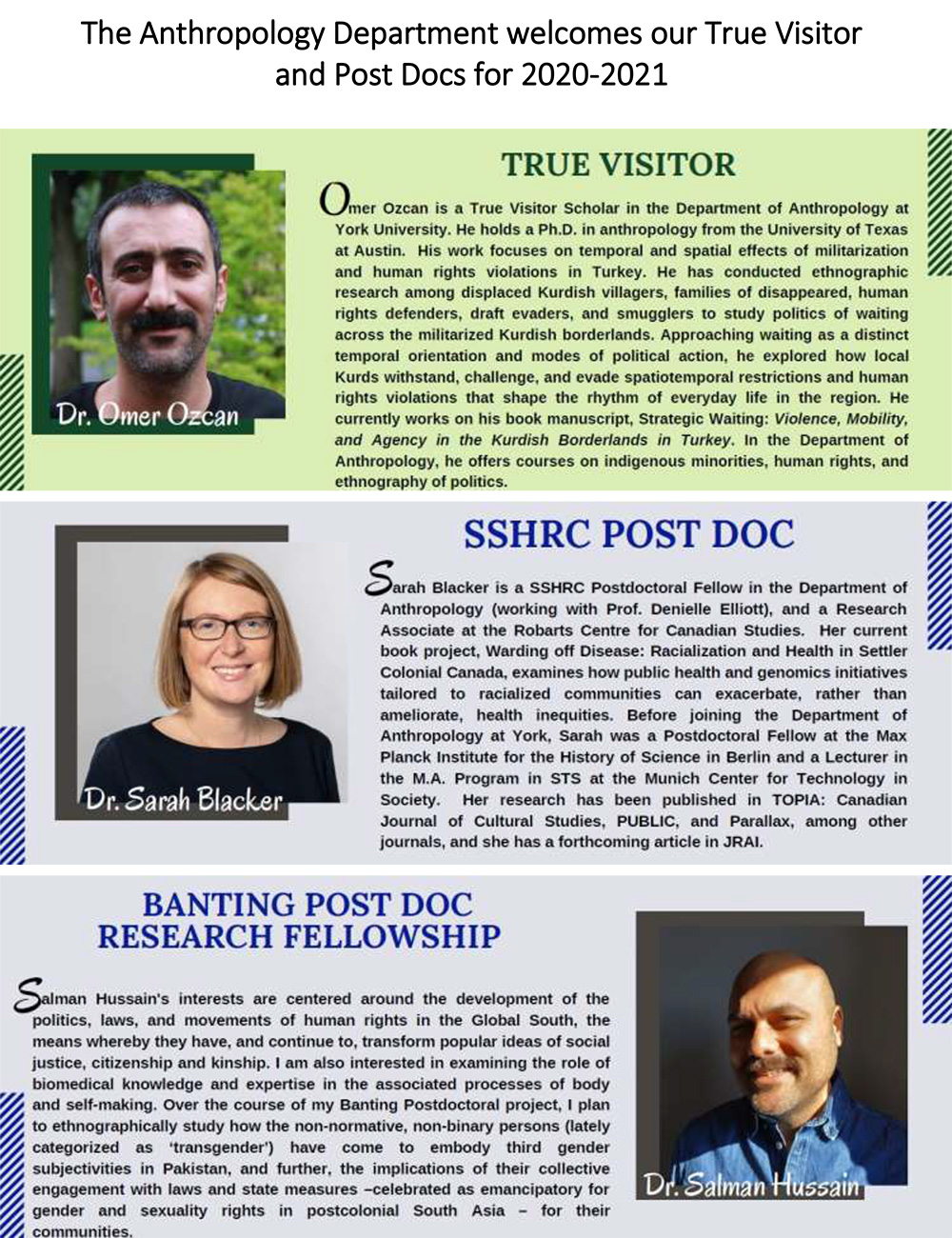New for 2020-2021 (PDF)

True Visitor: Dr. Omer Ozcan
Omer Ozcan is a True Visitor Scholar in the Department of Anthropology at York University. He holds a Ph.D. in anthropology from the University of Texas at Austin.
His work focuses on temporal and spatial effects of militarization and human rights violations in Turkey. He has conducted ethnographic research among displaced Kurdish villagers, families of disappeared, human rights defenders, draft evaders, and smugglers to study politics of waiting across the militarized Kurdish borderlands. Approaching waiting as a distinct temporal orientation and modes of political action, he explored how local Kurds withstand, challenge, and evade spatiotemporal restrictions and human rights violations that shape the rhythm of everyday life in the region. He currently works on his book manuscript, Strategic Waiting: Violence, Mobility, and Agency in the Kurdish Borderlands in Turkey. In the Department of Anthropology, he offers courses on indigenous minorities, human rights, and ethnography of politics.
SSHRC Post Doc: Dr. Sarah Blacker
Sarah Blacker is a SSHRC Postdoctoral Fellow in the Department of Anthropology (working with Prof. Denielle Elliott), and a Research Associate at the Robarts Centre for Canadian Studies. Her current book project, Warding off Disease: Racialization and Health in Settler Colonial Canada, examines how public health and genomics initiatives tailored to racialized communities can exacerbate, rather than ameliorate, health inequities. Before joining the Department of Anthropology at York, Sarah was a Postdoctoral Fellow at the Max Planck Institute for the History of Science in Berlin and a Lecturer in the M.A. Program in STS at the Munich Center for Technology in Society. Her research has been published in TOPIA: Canadian Journal of Cultural Studies, PUBLIC, and Parallax, among other journals, and she has a forthcoming article in JRAI.
Research Post Doc: Dr. Salman Hussain
Salman Hussain's interests are centered around the development of the politics, laws, and movements of human rights in the Global South, the means whereby they have, and continue to, transform popular ideas of social justice, citizenship and kinship. I am also interested in examining the role of biomedical knowledge and expertise in the associated processes of body and self-making. Over the course of my Banting Postdoctoral project, I plan to ethnographically study how the non-normative, non-binary persons (lately categorized as ‘transgender’) have come to embody third gender subjectivities in Pakistan, and further, the implications of their collective engagement with laws and state measures –celebrated as emancipatory for gender and sexuality rights in postcolonial South Asia – for their communities.
